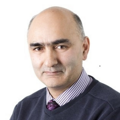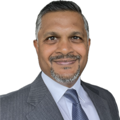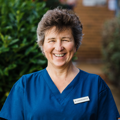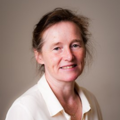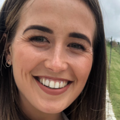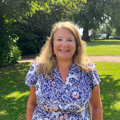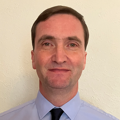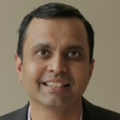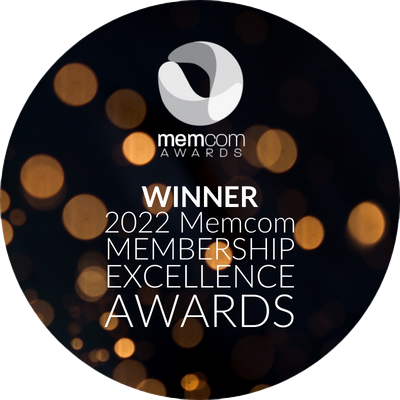The RCGP Annual Conference programme undergoes a peer review process by experienced GPs to ensure that the information presented is both relevant and insightful. Only the top-rated sessions submitted by RCGP members are chosen to be presented at the conference.
This must-attend event provides a valuable opportunity for primary healthcare professionals to learn, share knowledge, and connect with their peers.
This event is made possible by sponsorship from organisations including pharmaceutical companies, med tech companies and service providers none of which have influenced the event content or the choice of speakers. Sessions delivered with input from these organisations are marked as such on the programme and a list of all sponsors can be found here.
Easily filter through the programme based on your chosen topic highlights. Simply choose from the key below to see the programme overview.
Filter by Interest
Day 1
Day 1 Opening Plenary
09:00 - 10:15
Welcome Talks
Welcome from the RCGP Annual Conference Chair – Prof Margaret Ikpoh
Welcome from the RCGP President – Dr Richard Vautrey
RCGP Chair’s address - Prof Kamila Hawthorne
Keynote speaker – Prof Kevin Fenton
RCGP CEO address – Chris Askew
Break
10:15 - 11:15
Sponsored sessions
Sponsored Session
Sponsored Sessions
Sponsored session
Sponsored Sessions
Sponsored session
Sponsored Sessions
Sponsored session
Sponsored Sessions
11:15 - 12:00
11:15 - 12:00
1.1 Updates in genomic medicine and family history: Guiding primary care through geNotes
CPD: Clinical Topics
45 minutes
'Genomics' is recognised in Primary Care through presentations of family history of cancer or an inherited condition, or symptoms or investigations with a possible underlying genetic diagnosis. It is an area in which practitioners find it hard to address learning needs; the preference is to seek information at the point-of-care.
Through the just-in-time education resource 'Genotes' (Genomics Education Programme), attendees will be taken through quick-fire real-life clinical scenarios and given concise and practical information for clinical management, incorporating updates on recent guidance and programmes such as NICE Familial Ovarian Cancer, Clopidogrel genotyping, Sudden Cardiac Death and Bowel Cancer screening.
11:15 - 12:00
1.2 Maximising the potential of social prescribing to address 'the cause of causes' as a key component of effective primary care
Health Inequalities
45 minutes
Social prescribing is now an integral part of primary care, and over 2.4 million patients have been referred, with further expansion commitments in the NHS Workforce Plan. We explore how this approach is enabling primary care to address the underlying causes of ill-health, and supporting vulnerable patients to maintain their own health and wellbeing. The latest examples and robust evidence will be shared, both in the UK and other trailblazing countries globally. We will encourage delegates to explore how their own social prescribing services can be enhanced and consider future developments in an interactive, fun and energising session.
11:15 - 12:00
1.3 Chesterfield Strategy To Improve MRCGP AKT Pass Rate
Medical Education
45 minutes
The Applied Knowledge Test (AKT) poses a significant challenge for International Medical Graduates (IMGs) in the UK, evidenced by a 45.3% pass rate for first-time exam takers during GP training. In response, the Chesterfield Training Programme Directors (CTPD) devised a 5-point strategy. This approach utilises insights from the RCGP AKT review documents, focusing on aiding IMG registrars in addressing challenges encountered in answering AKT questions. The strategy includes identifying and addressing topics causing difficulties, as indicated in the AKT feedback report, aiming to level the playing field for IMGs and improve their success rates in the examination.
11:15 - 12:00
1.4 RCGP session coming soon
RCGP Priorities
45 minutes
11:15 - 12:00
1.5 Trans and gender questioning young people - A primary care consultation
Equality, Diversity & Inclusion in General Practice
45 minutes
There has been a rise in young people presenting to general practice gender questioning or as a trans-person. In a paper published in June 2019, The Royal College of GPs recognised that GPs are not experienced in treating and managing patients with gender dysphoria and trans health issues, nor is it part of the GP curriculum or GP speciality training. This, alongside significant problems with referral pathways, leads to a lack of confidence in how to approach consultations especially with young people. The session aims to address this.
1.6 CPD Essentials session coming soon
The conference planning team are working hard to offer increased availability and develop new and improved sessions in Adult Safeguarding, Child Safeguarding and Basic Life Support, required to meet revalidation.
Oral Short Paper Presentations
11:15 - 12:00
Oral Short Paper Presentations
45 minutes
Oral Short Paper Presentations
45 minutes
12:10 - 12:55
12:10 - 12:55
2.1 The new RCGP safeguarding standards - what does this mean for me?
CPD: Clinical Topics
45 minutes
Safeguarding children, and adults at risk of harm, is an integral part of general practice. It is intrinsic to the holistic care we give our patients but can be complex and challenging. Safeguarding learning is career-long and ever evolving. It needs to represent and respond to the voice and needs of victims and survivors of abuse. To do this, the RCGP has developed new professional safeguarding standards for general practice along with new resources. Join us to hear about the new standards and resources, RCGP safeguarding policy, and what the RCGP is doing to support safeguarding in general practice.
12:10 - 12:55
2.2 I’m interested in research: how do I get involved and fit this into my career?
Research & Innovation
45 minutes
The RCGP and National Institute for Health and Care Research (NIHR) have created a guide for early-career researchers about how they get involved and learn more about research. This session will be an interactive summary and launch of that guide including exciting opportunities to explore your interests and practical ways to improve your skills.
You will:
1. Gain a greater understanding of what research is and why it is so important.
2. Be signposted to numerous opportunities to develop your skills and get involved.
3. Explore how research can fit into your career and be linked to your interests.
12:10 - 12:55
2.3 Being Work-Able: encouraging healthy workplaces in NHS settings
Health & Wellbeing
45 minutes
Primary Care Networks should encourage Work-Able Digital Champions in each participating general practice; to become familiar with the range of digital resources for creating and sustaining healthy workplaces and practice team members adopting self-care. We have received national funding from the UK Shared Prosperity Fund allocated to Stoke-on-Trent to evolve and provide healthy workplace kits for 20 or so local practices and a range of other NHS and community organisations. The themes include: combatting work stress, back pain and the effects of the menopause, adopting healthy lifestyle habits and utilising digital aids matched to an individual's personal circumstances/health and wellbeing.
We will share our learning and experience in this session, with many 'take home' messages and links to freely available good practice guides that participants can use in their own NHS setting(s).
12:10 - 12:55
2.4 The care of the Veteran - reaching out to a hard to reach group
Health Inequalities
45 minutes
While most veterans have similar levels of health to the general population, more than half of (52%) have long-term illness, disability, or infirmity, higher than in general population (35%). They are also more likely to have higher rates of common mental health disorders such as anxiety and depression. Alcohol is part of military life and alcohol abuse leads to mental problems for veterans. This session will help GPs identify veterans and highlight referral pathways taking care away from the busy clinician. Accrediting your Practice as Veterans Friendly will improve the health care of veterans.
12:10 - 12:55
2.5 Artificial intelligence in the trainee portfolio: friend or foe?
Medical Education
45 minutes
Clinical case reviews (learning logs) in the trainee portfolio promote the reflective learning cycle, and enable trainees to tag both curriculum capabilities and clinical experience groups to their learning logs.
However, is there a risk of plagiarism from artificial intelligence tools? Or should these tools be harnessed to promote learning, and if so, how? Or should clinical case reviews be replaced with another form of evidence to demonstrate learning?
Oral Short Paper Presentations
12:10 - 12:55
Oral Poster Presentation 1
45 minutes
Oral Poster Presentation 2
45 minutes
Lunch
12:55 - 14:10
Sponsored sessions
Sponsored Session
Sponsored Sessions
Sponsored Session
Sponsored Sessions
Sponsored session
Sponsored Sessions
Sponsored session
Sponsored Sessions
Sponsored session
Sponsored Sessions
14:10 - 14:55
14:10 - 14:55
3.1 Understanding Gambling Harms
CPD: Clinical Topics
45 minutes
An estimated 340,000 people are thought to have a gambling disorder in the UK, and another two million people in the UK experience some harm from gambling and are at risk of developing a gambling disorder.
Currently, healthcare professionals have low awareness in this area and limited knowledge on how to identify and assist patients experiencing gambling harm.
This session will explore the patient perspective and provide GPs with some take away actions to implement in their practice. The RCGP is delivering a Gambling Harms project to raise awareness and help reduce the stigma attached to seeking help.
14:10 - 14:55
3.2 Food for thought: how we can eat sustainably
Sustainability
45 minutes
One of the main greenhouse gas emitters, and something that we do not often consider, is the food industry. We know that one third of food is wasted in the UK, and that hospitals are making fantastic attempts to reduce this. We also know the importance of supporting local and seasonal food produce. As healthcare professionals, what is the impact of the food we eat, how it is grown, how it is packaged and transported- and how can we advocate for healthy and sustainable eating for us, and for our patients?
14:10 - 14:55
3.3 Finding your ‘Ikigai’; Workshop around GP Retention
Your GP Career First5 and Mid careers
45 minutes
'Ikigai' (ee-Key-guy) from the Japanese concept of ‘Finding my Purpose’ An interactive session aimed at helping middle to later careers GPs consider what they need and what to do to remain healthy, fulfilled and successful in NHS practice.
14:10 - 14:55
3.4 Winners Enclosure
RCGP Priorities
45 minutes
14:10 - 14:55
3.5 Reflections on the everyday experience of multimorbidity: a discussion and documentary
Health Inequalities
45 minutes
This session explores everyday experiences of living with multimorbidity. Grounded in qualitative research conducted in East London, we highlight patients’ experiences with polypharmacy, health disparities, and the navigation of care services as central to the challenge of multimorbidity. Facilitated by anthropologist, Esca van Blarikom, and academic GP, Najia Sultan, the session offers a conceptual introduction to multimorbidity followed by an excerpt from the research film 'Harbouring Illness'. This documentary offers a portrait of three women living with long-term health conditions. Session participants will be invited to discuss and reflect upon the film and the challenges of multimorbidity in Primary Care.
3.6 CPD Essentials
The conference planning team are working hard to offer increased availability and develop new and improved sessions in Adult Safeguarding, Child Safeguarding and Basic Life Support, required to meet revalidation.
Oral Short Paper Presentations
Oral Short Paper Presentations
45 minutes
Oral Short Paper Presentations
45 minutes
15:05 - 15:50
15:05 - 15:50
4.1 The impact of an early neurodiversity diagnosis on success in the GP training scheme - in terms of both exams and workplace wellbeing
Medical Education AiT and GP trainers
45 minutes
• Awareness of the significant impact that neurodiversity can have in GP Training is increasing.
• Significant stigma continues to be felt, and the impact of cultural beliefs and understanding can result in intersectionality.
• In Yorkshire and the Humber, we have been proactively offering neurodiversity screening to all trainees at the start of training on a voluntary basis.
• The impact of an early diagnosis on trainees will be discussed in terms of exam success, workplace adaptations and wellbeing.
• We will focus on the support mechanisms that we have developed, particularly encouraging neuroaffirmative practice.
15:05 - 15:50
4.2 WiseGP: Using advanced generalist tools to enhance assets and address skills gaps in your practice team
Research & Innovation
45 minutes
The NHS needs advanced generalist medicine, now more than ever. Patients, professionals and policy makers urgently need access to the distinct expertise of whole-person, tailored healthcare. But it has been designed out of the way we run and support everyday practice. Join us to take a critical creative WiseGP look at your own practice set-up. Together, we will use our new 4Es framework to identify strengths and gaps in advanced generalist provision within your own practice teams. And we’ll invite you to work with us beyond the session to make the changes we need to reclaim general practice.
15:05 - 15:50
4.3 Mastering time management in general practice
Health & Wellbeing
45 minutes
The presentation highlights crucial role of time management in General Practice (GP) emphasizing the balance between patient care and administrative tasks. Key takeaways include conducting a personal time audit, employing prioritization techniques like the Eisenhower Matrix, and setting realistic goals. The importance of effective appointment scheduling, delegation, and utilization of technology, especially electronic health records are discussed. Stress management techniques to be provided for GPs. The session aims to enhance efficiency, reduce stress, improve GPs personal or professional well-being.
15:05 - 15:50
4.4 Vibrant Faculties
RCGP Priorities
45 minutes
15:05 - 15:50
4.5 Assisted Dying : If the law changes in the Isle of Man, what will that mean for Liverpool GPs?
CPD: Clinical Topics
45 minutes
Currently it seems possible that the legislation regarding assisted dying may change in the Isle of Man. There is also a parliamentary review occurring in Scotland.
If assisted dying is legalised in the Isle of Man , what will that mean for GPs on the Isle and those on the British mainland, especially in places like Liverpool which are in close proximity ?
Will GPs be expected to be involved? Will GPs not be involved at all?
Will GPs be expected to do assessments regarding AD? What about conscientious objection? What will it mean for GPs in the rest of the U.K.?
Will people now travel from the rest of the U.K. to the Isle of Man?
What form would AD take?
There are many unanswered questions, and this session is aimed at discussing them.
4.6 CPD Essentials
The conference planning team are working hard to offer increased availability and develop new and improved sessions in Adult Safeguarding, Child Safeguarding and Basic Life Support, required to meet revalidation.
Oral Short Paper Presentations
Oral Short Paper Presentations
45 minutes
Oral Short Paper Presentations
45 minutes
Break
15:50 - 16:50
Sponsored Sessions
Sponsored session
Sponsored Sessions
Sponsored session
Sponsored Sessions
Sponsored session
Sponsored Sessions
Sponsored session
Sponsored Sessions
Day 1 Closing Plenary
16:50 - 17:45
16:50 - 17:45
Spotlight: Childhood Health Inequalities
Three inspirational speakers share their learnings on tackling health inequalities in childhood in three 15-minute talks
Day 2
Day 2 Opening Plenary
09:00 - 10:00
09:00 - 10:00
NHS Question Time
Our expert panel answers questions from the audience on all the hot healthcare topics of the day
10:10 - 10:55
10:10 - 10:55
5.1 - RCGP session coming soon
RCGP Priorities
45 minutes
10:10 - 10:55
5.2 Social determinants and health inequalities: exploring the links and what general practice can do to reduce them
Health Inequalities
45 minutes
This session will reflect on how social issues such as poor housing, poverty, food quality, or discrimination have an impact on the health of our populations, and how they explain health inequalities. Presenting the RCGPs policy work on health inequalities, it will discuss what the role of general practice is in tackling inequalities and what can be done to equip GPs and their teams with the tools they need to help reduce health inequalities.
10:10 - 10:55
5.3 Redemption: The three circles and what makes general practice a Wonderful Life
Health & Wellbeing First5 and Mid careers
45 minutes
We will explore Burnout theory utilising the three circles model of Self-care (Threat-focussed, Drive & Achievement, Connect, Soothe & Self-care Systems) to help the audience understand the mechanics of the three systems, their neurophysiology and their effects on our thoughts emotions and behaviours.
We will cover the science behind the compassion, before focussing on the evidence behind the Why of General Practice: Continuity of Care.
10:10 - 10:55
5.4 Our opportunity – “Equivalent to a blockbuster drug”. Getting medicines right for health, NHS and global sustainability
Sustainability
45 minutes
Medications account for 25% of the NHS carbon footprint, they can be lifesaving but can also cause harm. This interactive session looks at the scale of the opportunity, and recognises the challenges and complexity of medicines optimisation. The session offers practical solutions for teams – vote on your preferred option. Quiz cases consider common clinical prescribing scenarios.
“There is a huge prize to be gained in improving the health of millions of people - comparable to a new blockbuster medicine - if only we can get this right.”
10:10 - 10:55
5.5 Medical improv for persistent physical symptoms
Medical Education
45 minutes
Persistent Physical Symptoms (PPS), formerly known as medically unexplained symptoms, represent more than 1/3 of GP consultations. These consultations can feel frustrating for healthcare professionals and leave patients feeling disappointed and misunderstood.
This interactive workshop introduces the mechanisms of PPS, why PPS is significant for primary care, the role of explanation and reassurance in recovery, and how ‘applied medical improv’ (not role-play) insights can help healthcare professionals improve the quality of care and better support patients with PPS.
This workshop helps healthcare professionals both improve their practice and develop new patient-centred approaches for PPS patients.
5.6 CPD Essentials
The conference planning team are working hard to offer increased availability and develop new and improved sessions in Adult Safeguarding, Child Safeguarding and Basic Life Support, required to meet revalidation.
Oral Short Paper Presentations
Oral Short Paper Presentations
45 minutes
Oral Short Paper Presentations
45 minutes
Break
10:55 - 11:55
Sponsored sessions
Sponsored session
Sponsored Sessions
45 minutes
Sponsored session
Sponsored Sessions
30 minutes
10 minutes Sponsored session
Sponsored Sessions
10 minutes
Sponsored session
Sponsored Sessions
15 minutes
Sponsored session
Sponsored Sessions
10 minutes
11:55 - 12:40
11:55 - 12:40
6.1 Managing end of life care at home: Clinical update
CPD: Clinical Topics
45 minutes
Managing the symptoms of a person at or approaching end of life is a core part of general practice and a core skill for GPs and practice teams. This session will use clinical case examples alongside current guidance to give practical clinical information about management of common symptoms. The session will include assessment, pharmacological and non-pharmacological management of common symptoms experienced at end of life . Symptoms discussed will include pain, breathlessness, nausea and vomiting, distressing respiratory secretions, hiccups, anxiety, agitation and delirium. We will discuss some of the practical issues around managing end of life care at home. The session will be presented by GPs with expert specialist knowledge in managing these symptoms in the community.
11:55 - 12:40
6.2 Innovative strategies for embedding lifestyle medicine in primary care: A blueprint for collaborative action
Health & Wellbeing
45 minutes
The workshop, titled "Innovative Strategies for Embedding Lifestyle Medicine in Primary Care: A Blueprint for Collaborative Action," offers a comprehensive exploration of a groundbreaking initiative originating from the Leamington Primary Care Network (PCN). The 45-minute session delves into the development, implementation, and evaluation of a lifestyle medicine service that showcased promising results in addressing chronic conditions through a collaborative and multidisciplinary approach.
11:55 - 12:40
6.3 Mental Health of asylum seekers & refugees - A journey that never ends
Health Inequalities
45 minutes
According to the UNHCR, in November 2022 there were 231,597, 127,421 pending asylum cases and 5,483 stateless persons in the UK. There are many reasons why people make a perilous journey from their country of origin to the UK and this talk will give an overview of some of the reasons and the triggers that can cause mental health decline. When arriving in the UK it is important to holistically care for the patient and there will be resources highlighted to aid GPs in caring for this patient population.
11:55 - 12:40
6.4 - RCGP session coming soon
RCGP Priorities
45 minutes
11:55 - 12:40
6.5 Ask the First5s
Your GP Career First5 and Mid careers
45 minutes
This would be a similar session (but bigger) to what was delivered on the RCGP Stand in Glasgow 2023- a panel of First5 GPs who hold a variety of additional roles, talking about their interest areas, how they have come into this and how it helps sustain their careers. This will be a chaired session. the session chair will ask questions to the panellists, as well as inviting audience participation with questions in the room and on the app. A similar setup to the popular "ask the chairs" session that happens every year at conference.
6.6 CPD Essentials
The conference planning team are working hard to offer increased availability and develop new and improved sessions in Adult Safeguarding, Child Safeguarding and Basic Life Support, required to meet revalidation.
Oral Short Paper Presentations
Oral Short Paper Presentations
45 minutes
Oral Short Paper Presentations
45 minutes
Lunch
12:40 - 13:55
Sponsored Sessions
Sponsored session
Sponsored Sessions
Sponsored session
Sponsored Sessions
Sponsored session
Sponsored Sessions
Sponsored session
Sponsored Sessions
Sponsored session
Sponsored Sessions
13:55 - 14:40
13:55 - 14:40
7.1 Supporting the teaching and learning of shared decision-making skills using virtual patients
CPD: Clinical Topics AiT and GP trainers
45 minutes
Shared decision-making is a vital skill in general practice, but it is commonly misunderstood, and it can be difficult to know if we’re doing it or not. This session will introduce a suite of new virtual patients designed to support clinicians in developing their shared decision-making skills. And we will disseminate and discuss results from the formal qualitative evaluation of the impact of the new virtual patients on shared decision-making in clinical practice. The experience of clinicians is key in understanding the role of this learning for clinical practice.
13:55 - 14:40
7.2 Building bridges, breaking barriers: Effective engagement in primary care
Equality, Diversity & Inclusion in General Practice First5 and Mid careers
45 minutes
Building Bridges, Breaking Barriers: Effective Engagement in Primary Care: This session illuminates strategies for enhancing engagement across various healthcare domains. From within your GP practice and primary care networks to neighbourhoods and broader healthcare systems, the session offers practical tips, tools, and methods to maximize impact. Attendees will gain insights on fostering effective communication, breaking down barriers, and building collaborative bridges within and beyond their practice. This dynamic session empowers healthcare professionals to navigate and strengthen connections at every level, ultimately advancing the quality and impact of care delivery in diverse healthcare settings.
13:55 - 14:40
7.3 Late Career: Opportunity Knocks
Your GP Career Later Careers
45 minutes
"Late-Career GP: Opportunity Knocks” explores the effective late-career transition to whatever one makes of it: some cannot wait to escape Primary care, others want to contribute and develop the NHS widely, whilst others stay at the Coal Face. This session will explore options associated with Primary Care, rather Pensions, camper vans, or new business enterprises! Emphasizing the value of experience in enhancing patient care and mentoring new doctors, there will be a short overview with audience participation, followed by 2 speakers with varied experience after formal retirement. Delegates will be encouraged to speculate personally and perhaps change paradigm.
13:55 - 14:40
7.4 Ask the Chairs
RCGP Priorities
13:55 - 14:40
7.5 Teaching GP triage decision making through Tactical Decision Games
Medical Education
45 minutes
Using a table-top simulation exercise known as a tactical decision game, this interactive session will explore the complexities and nuances of triage decision making in General Practice. Participants will be asked to rank patient presentations in order of priority and decide as a group the best course of action whilst justifying the decisions made. This is a novel way of teaching this growing area of General Practice, and may be of particular interest to both educators and learners alike.
7.6 CPD Essentials
The conference planning team are working hard to offer increased availability and develop new and improved sessions in Adult Safeguarding, Child Safeguarding and Basic Life Support, required to meet revalidation.
Winning Posters
Winning Posters - 3 mins per poster winner 9 Topics
45 minutes
Break
14:40 - 15:40
Sponsored Session
Sponsored Session
Sponsored Sessions
Sponsored session
Sponsored Sessions
Sponsored session
Sponsored Sessions
Sponsored session
Sponsored Sessions
15:40 - 16:25
15:40 - 16:25
8.1 Practical insights for pioneering sustainable asthma care in practice
Sustainability
45 minutes
Enhancing asthma care in the UK is imperative, given its alarming asthma mortality rates, ranking among the highest in Europe. The 2014 National Review of Asthma Deaths identified preventable factors in a staggering 90% of cases, while a significant number of individuals with asthma endure unnecessary symptoms and attacks. Two critical focal points involve optimising medication delivery to patients and concurrently addressing the carbon footprint tied to pressurised metered dose inhaler prescribing, which accounts for 13% of the NHS's direct carbon footprint. Join this session to discover actionable strategies for elevating the quality of asthma care in practice settings.
15:40 - 16:25
8.2 Establishing and navigating a successful EDI network in primary care: Reflections on successes and challenges
Equality, Diversity & Inclusion in General Practice
45 minutes
This session offers insights into the establishment and operation of a successful system wide Equality, Diversity, and Inclusion (EDI) network within primary care in Birmingham and Solihull. The discussion will delve into the triumphs and challenges encountered throughout this process. Attendees will gain a comprehensive understanding of the strategies that contributed to the network's success, as well as the obstacles that were navigated. The session aims to provide valuable reflections that can inform future initiatives and inspire participants to actively engage in fostering more inclusive and equitable healthcare environments within primary care settings. The session aims to explore the journey of implementing and sustaining an EDI network, with a focus on the lessons learned, achievements, and the ongoing commitment to advancing diversity and inclusion in healthcare.
15:40 - 16:25
8.3 Novel approaches to cancer detection in primary care; Research into clinical practice
Research & Innovation
45 minutes
1 in 2 of us will develop cancer. Primary care has a key role in cancer detection, via supporting asymptomatic screening programmes and symptomatic diagnosis. This session will summarise latest evidence to help GPs and teams keep up to date in this rapidly changing area. It will cover novel approaches for asymptomatic screening, such as self testing (cervical), higher risk screening (lung and oesophageal) and reducing inequalities. For symptomatic patients, evidence for triage tests and rapid diagnostic centres (RDCs) for vague symptoms will be outlined. Finally, the potential for multi-cancer early detection (MCED) tests in both asymptomatic and symptomatic populations.
15:40 - 16:25
8.4 Another string to your bow – Nurturing leadership skills in our teams and trainees
Your GP Career First5 and Mid careers
45 minutes
Are you fed up with always having to step up to lead change? Want to share the responsibility with the rest of your team, but can’t seem to make this happen? Then read on. Leadership in primary care, getting the best from each other to achieve more, isn’t a skill just possessed by a few. It’s a capability that many have but need help finding their inner leader. In this dynamic session we describe how you can build a team of effective leaders in practical ways you can action tomorrow.
15:40 - 16:25
8.5 Bridging the explanation gap - Making sense of persistent physical symptoms
CPD: Clinical Topics
45 minutes
Symptoms are central to our work as general practitioners. As well as new symptoms, we deal with persistent symptoms such as pain, dizziness and fatigue. Persistent symptoms often defy diagnosis and frustrate patients and practitioners. There is an emerging science of symptoms - of how our brains read and interpret our bodies - but this hasn't yet gone mainstream. This session will briefly introduce this science of symptoms. It will move on to looking at how GPs can use this science to listen more confidently, explain persistent symptoms to patients, and maximise the reassurance from necessary diagnostic tests.
8.6 CPD Essentials
The conference planning team are working hard to offer increased availability and develop new and improved sessions in Adult Safeguarding, Child Safeguarding and Basic Life Support, required to meet revalidation.
Closing Plenary
16:25 - 17:30
16:25 - 17:30
Research paper of the year
President's address
Registration, networking, exhibition and ePoster viewing
08:00 - 09:00
09:00 - 10:00
PLENARY: NHS QUESTION TIME
Chair: Dr Margaret Ikpoh, Vice Chair (Professional Development), RCGP
10:10 - 10:55
E1: Mobilizing the expertise of mid career GPs *FULLY BOOKED*
Your GP Career
*Session at capacity*
Your GP Career
In collaboration with the RCGP Professional Standards Working Group, this session will be dedicated to GPs who are mid career. The RCGP has dedicated significant resources to the GP AiT and First Fives. This is the year of the GPs in the midst and the thick of it, to those who have dedicated their professional life to their practices and their patients. We are looking to promote and develop resources specifically for this career stage. By offering a forum and workshop, we will trigger, discuss and understand the professional needs to this group of GPs. We will offer a stage and opportunity to those in clinical practice and to those who are training the future GPs in their practices.
Our colleagues have 10 + years experience as GPs and are facing unprecedented challenges associated with unmet need in local populations, various workforce.
We will hear from colleagues about; a GP trainer – 10 years in and a GP in practice 10 years in – clinical and operational challenges.
This will be captured and developed into an action plan for the RCGP to take forwards through their professional development programme and in collaboration with
Chair: Professor Kamila Hawthorne MBE, Chair of RCGP Council, RCGP
E2: Integrating, embedding, and modernising primary care research
Research & Innovation
The need to move from a “top-down” to a “bottom-up” approach to primary care research has been increasingly highlighted In policy reports. The pandemic demonstrated how when research feels relevant to clinicians and patients, participation levels Increase significantly. However, much more is possible with a wider baseline of engagement at all levels not just in taking part In research but also in developing its direction and making It an Integral part of health care delivery.
The need to move from a “top-down” to a “bottom-up” approach to primary care research has been increasingly highlighted In policy reports. The pandemic demonstrated how when research feels relevant to clinicians and patients, participation levels Increase significantly. However, much more is possible with a wider baseline of engagement at all levels not just in taking part In research but also in developing its direction and making It an Integral part of health care delivery.
Chair: Dr Victoria Tzortziou Brown
E3: Equality, Diversity and Inclusion in General Practice & Race Discrimination: How do we change the status quo?
Equality, Diversity & Inclusion in General Practice
Nationally, secondary care data has repeatedly shown workplace disparity in discriminatory experiences from patients and colleagues. Whilst work is being done to deliver a national survey for primary care, GP teams have taken the initiative to deliver local surveys. Every survey has identified racial, ethnic or religious discrimination. However, there have been innovative and successful interventions to address these disparities. This session will cover the importance of understanding EDI concepts, and what local experiences have been but also look ahead to learn from what has been delivered to implement change and what else can be done to change the status quo.
Chair: Dr Margaret Ikpoh, Vice Chair (Professional Development), RCGP
E4: Shining a light on the invisible: psychological masonry and reflective practice in primary care
Health Inequalities
This session provides an introduction to the psychodynamic consequences of adversity as they can manifest within primary healthcare settings, and provides an aspirational and relational description of what is often referred to as ‘trauma-informed practice’. It will shine a light on the invisible world of relational care and explore through common scenarios how complications with the care relationship can arise from experiences of early adversity and cause ongoing problems for both patient and clinician.
Chair: Dr Michael Mulholland
E5 Quality Improvement Short Papers
A quality improvement project at Kirton Lindsey and Scotter Surgery to reduce the use of paper in consenting process by 50% by obtaining consent digitally.
Presenter: Satpal Shekhawat, GP Partner, Kirton Lindsey and Scotter Surgery
improving the well-being of administration staff in GP surgery – a collaborative approach to reducing stress levelso
Presenter: Sarah Peterson, GP partner cql, NHS Tayside
Evaluation of the ‘GP Daffodil Standards for Advanced Serious Illness and End of Life Care’ in UK General Practice
Presenter: Stephanie Sivell, Research Fellow / Marie Curie Research Associate, Cardiff University
Educating and empowering students to be the drivers of sustainable change
Presenter: Angela Millar, Lecturer in Undergraduate Healthcare Improvement, University of Dundee
Chair: Dr Jane Wilcock
E6: Innovation & Equality, Diversity & Inclusion Short Papers
“A rose by any other name: would re-branding help general practice?”
Presenter:Tanvi Cheetirala, Medical Student, University of Glasgow
AI and Health Equity in Primary Care: A qualitative, inductive stakeholder exploration of how AI can be implemented in a manner beneficial for health equity. Presenter: Alexander d’Elia, GPST and PhD student, University of Liverpool
Introduction of a transgender healthcare teaching session to General Practice trainees
Presenter: Demi Thompson, GP trainee, Mid Yorkshire Hospital
A patient-centred, interactive digital decision tool to individualise menopause care
Presenter: Aini Kamal, Masters Student, UCL EGA Institute for Women’s Health
Chair: Dr Edward Russell-Smith
E7: Adult Safeguarding - A broad view of the impact of domestic abuse across the lifecourse, with a focus on the impact on those with protected characteristics (10:10-11:10) *FULLY BOOKED*
CPD: Clinical Topics
*Session at capacity*
Domestic abuse is appalling in its toll on the people and families affected. It is an abuse of human rights and a major public health problem because of the long-term consequences for people who have experienced it. As well as the personal tragic impact on every family affected, domestic abuse costs public services £4 billion each year, with the NHS bearing almost half of this cost.
We know people of all ages and backgrounds can experience this pernicious form of harm, but we are playing closer attention to the complex interplay between domestic abuse, poverty and intersectionality.
This talk aims to offer information and resources to support us all to ask the right questions and so help to end the cycle of abuse.
Chair: Dr Ursula Mason
Networking break, exhibition and ePoster viewing
10:55 - 11:55
Poster Discussions
11:05 - 11:45
SPONSORED SESSION START TIME
SS15: La Roche-Posay & CeraVe sponsored Session on Sun-kissed or sun-cursed? *FULLY BOOKED*
Sponsored Sessions
*Session at capacity*
Sunlight plays a pivotal role in stimulating vitamin D synthesis, essential for optimum skin and general health. Sunshine can also alleviate certain inflammatory skin conditions, like psoriasis and eczema. Yet the cumulative effects of ultraviolet radiation can compromise the skin’s structural integrity leading to photoaging. More critically, prolonged and unprotected sun exposure substantially increases the risk of developing melanoma, keratinocyte and other skin cancers. Over the last 50 years, the UK has witnessed a steep increase in all skin cancers. Women and especially younger age groups, show higher skin cancer rates. This talk will outline skin cancer risk and optimum preventative measures.
Chair: Dr Aaliya Goyal, representing the RCGP

SS16: Embracing tomorrow's healthcare: balancing innovation and risk - applying professional guidance and legal principles in evolving primary care environments sponsored by MDDUS *FULLY BOOKED*
Sponsored Sessions
*Session at capacity*
Sponsored Session on Idemnity by MDDUS
Developments in technology and in AI are being utilised to empower patients and improve efficiency and effectiveness of the primary care team. New models of patient care including triage, consultation and review are emerging in a range of ways.
Chair: Dr Alex Lai, representing the RCGP

SS17: The nuts and bolts of digital therapeutics - How digital behaviour-change coaching can support patients in achieving Type 2 Diabetes remission sponsored by Liva Health *FULLY BOOKED*
Sponsored Sessions
*Session at capacity*
There is increasing adoption of digital health tools to support people living with type 2 diabetes. NHS England is currently piloting digitally-delivered versions of the Type 2 Diabetes Path to Remission (T2DR) Programme. Digital personalised services have the potential to overcome many of the barriers people may face in accessing healthcare. Early outcomes are encouraging, with a mean HbA1c reduction of 14mmol/mol and a mean weight loss of 12.3% at 6 months.1
Despite this, awareness of the programme within primary care remains low.
GP Dr Rahul Thakur shares his insights as Clinical Lead for the remote T2DR programme within Lancashire and South Cumbria ICB.
1 Liva Healthcare mid-programme service evaluation
Chair: Dr Chris Provan, representing the RCGP
![]()
SPONSORED SESSION START TIME
11:20
SS18: Continuity of care in general practice in cardio-renal disease sponsored by AstraZeneca *FULLY BOOKED*
Sponsored Sessions
*Session at capacity*
This is a promotional symposium sponsored and organised by AstraZeneca
This session investigates the management of hyperkalaemia. It explores what it means to go beyond traditional treatments and focuses on managing cardiovascular and renal patients with hyperkalaemia. It then looks into a real-life case study, and what the benefits of implementing guideline directed medicine therapy can be for your patients and your practice.
Chair: Dr Steve Holmes, representing the RCGP
![]()
SS19: Science and Leadership during the SARS-CoV-2 pandemic sponsored by Moderna *FULLY BOOKED*
Sponsored Sessions
*Session at capacity*
The SARS-CoV-2 pandemic has been arguably the largest global public health threat since the 1918 influenza pandemic, or the HIV/AIDS pandemic. Governments around the world faced a rapidly encroaching threat, against a backdrop of a globalized world economy, and almost instant dissemination of information (and misinformation). There were no vaccines or antiviral drugs initially available. In that space, science, clinical medicine, public health, politics, and leadership became rapidly intertwined. Prof. Van-Tam served as Deputy Chief Medical Officer (England) during that turbulent and difficult period and, in this lecture, will offer his unique perspective on what happened, and why.
Chair: Dr Onyinye Okonkwo, representing the RCGP
![]()
11:55 - 12:40
F1: HALT-ing Homelessness: A tool to identify housing insecurity in primary care
Health Inequalities
Patients could be at risk of losing their home when they interact with primary care clinicians. Acknowledging the grave health outcomes associated with homelessness, identification and prevention is crucial where possible. But how will we know?
Together with the Centre for Homelessness Impact, a research team at Queen’s University, Belfast have identified tools being used in healthcare to identify housing issues for referral to support services, aiming to introduce a tool of this nature to everyday practice in the United Kingdom and Ireland. This session summarises the journey so far with the opportunity to reflect your own experiences.
F2: Antimicrobial resistance -The patient perspective
Sustainability
GPs face many challenges and pressures around antibiotic prescribing. Antibiotic resistance is already a global problem with 700,000 deaths every year attributed to antibiotic resistant infections and predictions of 10M by 2050 if the problem is not successfully addressed. The need for antibiotic stewardship and responsible prescribing is balanced against patient pressures to receive the perceived “wonder drugs”. This session illustrates the impact of resistant infection from patient perspectives, updates on current issues in antimicrobial resistance and the work of the patient support service at the charity Antibiotic Research UK .
Chair: Dr Jamie Hynes
F3: Where it all starts: primary care placements are the future of medical student teaching in the UK, which is the future of the NHS.
Medical Education
Primary care is pivotal to the future of medical student teaching in the UK. The Labour party have already stated they intend to double medical student numbers if they win the next election. However, without an oven-ready blueprint for strengthening and expanding undergraduate primary care education, plans such as these are likely to fail. This session describes the current nature, value, imperatives, and challenges regarding clinical teaching in the primary care setting. It will then suggest solutions and cast a vision for the future of teaching medical students in general practice … which is the future of the NHS.
Chair: Dr Ursula Mason
F4: The Future General Practitioner: What will I need to thrive in Primary Care?
RCGP Priorities
General Practice has seen another challenging year of high workloads, difficulties in retention and a stretched workforce. Join our panel for an interactive discussion around the tools and strategies we need to thrive in Primary Care.
Chair: Dr Emma Wong
F5: Audit & Practice Survey Short Papers
Audit to assess responses to suspected cancer EMIS alerts for patients with unexplained thrombocytosis in general practice.
Presenter: Isabella Busa, Medical Student, University of Oxford
Ask About Alcohol: Audit of alcohol intake quantification during general practice consultations for depression ,
Presenter: Andrew Macaulay, Foundation Doctor, NHS GGC
Survey of Menopause management in General Practice. Improvement recommendations including using the Greene Climacteric Score
Presenter: Charles Numbere, Doctor, West Midlands Deanery
Audit of routine preschool immunisation uptake in an ethnically diverse, socially disadvantaged local authority
Presenter: Yunzila Mirza, Foundation Year 1 Doctor, Yunzila Mirza
Chair: Dr Jane Wilcock
F6: Child Sexual Abuse: Learning lessons from the Independent Inquiry into Child Sexual Abuse (IICSA) and how we in primary care can identify, and respond to, child sexual abuse (11:55-12:55) *FULLY BOOKED*
CPD: Clinical Topics
*Session at capacity*
Child Sexual Abuse: Learning lessons from the Independent Inquiry into Child Sexual Abuse (IICSA) and how we in primary care can identify, and respond to, child sexual abuse
Level 3
Chair: Dr Rowena Christmas, GP
Lunch, networking break, exhibition and ePoster viewing
12:40 - 13:40
SPONSORED SESSION START TIME
12:45
SS20: Talk menopause transform lives sponsored by Besins
Sponsored Sessions
This is a promotional symposium sponsored by Besins Healthcare.
Chair: Dr Dirk Pilat, representing the RCGP

SS21: Migraine Management in Primary Care: New NHS Guidance and the role of an oral CGRP receptor antagonist sponsored by Pfizer
Sponsored Sessions
Prescribing information for GB and NI can be found here.
Adverse event reporting can be found at the bottom of this page.
This is a promotional symposium intended for UK HCPs, organised and funded by Pfizer Ltd. Please note, this
session will discuss Pfizer products. Job code: PP-NNT-GBR-0927; Date of preparation: October 2023.
This 45-minute symposium will provide GPs with an update on the new NNAG Headache Pathway, GIRFT Outpatient Guidance and Scottish pathways published in 2023 to get an understanding of the changing headache management/treatment pathways, and their integration into primary care. It will briefly highlight the burden and current unmet needs experienced by people living with migraine and provide an overview of the current treatment options available within primary care. Case studies will be used to help illustrate common management scenarios and patient profiles within primary care.
Chair: Dr Chris Williams, representing the RCGP
![]()
Adverse events should be reported. Reporting forms and information can be found at https://yellowcard.mhra.gov.uk/ or search for MHRA Yellow Card in Google Play or Apple App Store. Adverse events should also be reported to Pfizer Medical Information on 01304 616161
SS22: Sponsored Session by AstraZeneca *FULLY BOOKED*
Sponsored Sessions
This is a promotional symposium sponsored and organised by AstraZeneca
Chair: Dr Khaled Zeidan, representing the RCGP
![]()
SPONSORED SESSION START TIME
13:20
SS23: Sponsored Session
Sponsored Sessions
SS24: Sponsored Session
Sponsored Sessions
13:40 - 14:25
G1: Leadership and management education for general practice careers: learning from evaluation of the Next Generation GP Programme *FULLY BOOKED*
Medical Education
This highly interactive session will use the findings of an independent academic evaluation of the Next Generation GP development programme to explore and debate how the management and leadership educational needs of GPs might be met in the UK over the coming decade. Consideration will be given to how this increasingly important area of medical education can be designed and offered so that GP trainees and GPs at all stages of their career are well-prepared and supported for leadership roles within practices, multi-disciplinary teams, primary care or locality networks, at-scale primary care organisations, and integrated care systems or health boards.
G2: Working together to improve menopause care
CPD: Clinical Topics
The menopause is an important life stage for many women and has attracted much media attention recently. Apart from hot flushes and night sweats, there are other non-specific symptoms which can present to the primary care clinician. The management can include, but not limited to, hormone treatments but not everyone wants or needs them.
Using case studies, we will discuss when menopause could be considered as part of a holistic assessment without medicalising it, how to have honest conversations about utility of hormone treatments and what other management strategies could be considered.
This workshop does not cover the therapeutics.
G3: RCGP Research Showcase: The power of General Practice and a land of opportunity
Research & Innovation
Research has a vital role in improving patient care. The RCGP supports research in many ways offering many opportunities for GPs. This session will explore these opportunities and show the true power of General Practice. It will celebrate (with the NIHR) the many recent incredible achievements including the largest, fastest recruiting community trial worldwide (PANORAMIC).
This session includes the Oxford-RCGP Research and Surveillance Centre (RSC), and how it informs research, college policy, disease spread and vaccine effectiveness. This has a direct patient benefit and opportunities for GPs to engage and deliver research in their own practice.
G4: Ask the Chairs
RCGP Priorities
Join us for this Q&A session where you can put questions to;
G5: Wining Poster presentations
Short papers
Chair: Dr Louise Sands
G6: Child Safeguarding Child Sexual Abuse: Learning lessons from the Independent Inquiry into Child Sexual Abuse (IICSA) and how we in primary care can identify, and respond to, child sexual abuse (13:40-14:40) *FULLY BOOKED*
CPD: Clinical Topics
*Session at capacity*
Child Sexual Abuse: Learning lessons from the Independent Inquiry into Child Sexual Abuse (IICSA) and how we in primary care can identify, and respond to, child sexual abuse
Level 3
Chair: Dr Sian Tucker
Networking break, exhibition and ePoster viewing
14:25 - 15:25
SPONSORED SESSION START TIME
14:30
SS25: Sponsored Session
Sponsored Sessions
*Session at capacity*
Prescribing information for GB and NI can be found here.
Adverse event reporting can be found at the bottom of this page.
This is a promotional symposium intended for UK HCPs, organised and funded by Pfizer Ltd. Please note, this
session will discuss Pfizer products. Job code: PP-NNT-GBR-0927; Date of preparation: October 2023.
This 45-minute symposium will provide GPs with an update on the new NNAG Headache Pathway, GIRFT Outpatient Guidance and Scottish pathways published in 2023 to get an understanding of the changing headache management/treatment pathways, and their integration into primary care. It will briefly highlight the burden and current unmet needs experienced by people living with migraine and provide an overview of the current treatment options available within primary care. Case studies will be used to help illustrate common management scenarios and patient profiles within primary care.
Chair: Dr Chris Williams, representing the RCGP
![]()
Adverse events should be reported. Reporting forms and information can be found at https://yellowcard.mhra.gov.uk/ or search for MHRA Yellow Card in Google Play or Apple App Store. Adverse events should also be reported to Pfizer Medical Information on 01304 616161
SS26: Migraine Management in Primary Care: New NHS Guidance and the role of an oral CGRP receptor antagonist sponsored by Pfizer *FULLY BOOKED*
Sponsored Sessions
SS27: La Roche-Posay & CeraVe sponsored Session on Sun-kissed or sun-cursed? *FULLY BOOKED*
Sponsored Sessions
*Session at capacity*
Sunlight plays a pivotal role in stimulating vitamin D synthesis, essential for optimum skin and general health. Sunshine can also alleviate certain inflammatory skin conditions, like psoriasis and eczema. Yet the cumulative effects of ultraviolet radiation can compromise the skin’s structural integrity leading to photoaging. More critically, prolonged and unprotected sun exposure substantially increases the risk of developing melanoma, keratinocyte and other skin cancers. Over the last 50 years, the UK has witnessed a steep increase in all skin cancers. Women and especially younger age groups, show higher skin cancer rates. This talk will outline skin cancer risk and optimum preventative measures.
Chair: Dr Peter Burke, representing the RCGP

SPONSORED SESSION START TIME
14:45
SS28: Sponsored Session
Sponsored Sessions
Chair: Dr Khaled Zeidan, representing the RCGP
SS29: Sponsored Session
Sponsored Sessions
SS30: Sponsored Session
Sponsored Sessions
15:25 - 16:10
H1: How simulation can be used to enhance interprofessional working and the management of acutely unwell patients in a primary care environment *FULLY BOOKED*
CPD: Clinical Topics
All areas of the National Health Service are under increasing pressure and with Accident and Emergency departments advising patients to avoid attending and waits for ambulances becoming longer, more acutely ill patients are presenting to us in primary care. Therefore, being able to recognise and manage unwell patients attending GP practices has never been more vital. Optimal management of the patient necessitates a whole team approach.
In this workshop we will demonstrate how simulation training around managing emergencies empowers practice teams to manage acutely unwell patients safely and efficiently.
Chair: Dr Sharon Russell
H2: Young People and Social media, the good, the bad and the ugly
Health & Wellbeing
It’s becoming increasingly clear that social media is having a detrimental effect on the mental health and wellbeing of our young people.
It’s unclear if the online safety bill currently under review in parliament will be able to reverse some of the harms arising.
This session proposes to provide an overview of the current evidence in this area, what can and is being done to combat the harm from social media, and a suite of approaches for use in practice when talking to young people and their carers about social media use, eg communication skills, use of patient engagement tools, signposting to helpful websites/apps.
H3: An appraisal and active discussion of how best to equip GPs to thrive in a modern primary care workforce
Medical Education
The speakers will explore the range skills required to work effectively as a GP in the context of a rapidly expansing multi-professional workforce.
Participants will be asked to discuss and share which skills are of the highest priority to be taught and developed during GP training and in the first years post completion of training.
The speakers will present an overview of some ideas to aid the discussion. This will include a presentation of an innovative approach to developing the supervision skills of GPs in training in East Devon.
H4: Neurodiversity in the General Practice workforce
Equality, Diversity & Inclusion in General Practice
With an estimated 15-20% of the population considered to be ‘neurodivergent’, an awareness of neurodiversity in our patients is essential for delivering high-quality care. However, we believe that recognising neurodivergence in both our colleagues and ourselves is equally important, for our own wellbeing as well as that of our patients and the workforce as a whole. In this session, we will use interactive case studies informed by the lived experience of neurodivergent healthcare staff with Autism, ADHD, Dyslexia and Dyspraxia to explore how to recognise this undervalued group, access individual support and create a more ‘neurodiversity-friendly’ practice environment.
Chair: Dr Ursula Mason
H5: Basic Life Support (inc AED) (15:25-16:25) *FULLY BOOKED*
CPD: Clinical Topics
*Session at capacity*
Basic Life Support
Level 3
16:20 - 17:20
CLOSING PLENARY
Chair: Professor Kamila Hawthorne MBE, Chair of RCGP Council, RCGP
Research paper of the year
John Hunt Lecture: Professor Brendan Delaney
Presidents Address: Dame Clare Gerada, President, RCGP
Filter by Interest
Day 1
Day 1 Opening Plenary
09:00 - 10:15
Welcome Talks
Welcome from the RCGP Annual Conference Chair – Prof Margaret Ikpoh
Welcome from the RCGP President – Dr Richard Vautrey
RCGP Chair’s address - Prof Kamila Hawthorne
Keynote speaker – Prof Kevin Fenton
RCGP CEO address – Chris Askew
Break
10:15 - 11:15
Sponsored sessions
Sponsored Session
Sponsored Sessions
Sponsored session
Sponsored Sessions
Sponsored session
Sponsored Sessions
Sponsored session
Sponsored Sessions
11:15 - 12:00
11:15 - 12:00
1.1 Updates in genomic medicine and family history: Guiding primary care through geNotes
CPD: Clinical Topics
45 minutes
'Genomics' is recognised in Primary Care through presentations of family history of cancer or an inherited condition, or symptoms or investigations with a possible underlying genetic diagnosis. It is an area in which practitioners find it hard to address learning needs; the preference is to seek information at the point-of-care.
Through the just-in-time education resource 'Genotes' (Genomics Education Programme), attendees will be taken through quick-fire real-life clinical scenarios and given concise and practical information for clinical management, incorporating updates on recent guidance and programmes such as NICE Familial Ovarian Cancer, Clopidogrel genotyping, Sudden Cardiac Death and Bowel Cancer screening.
11:15 - 12:00
1.2 Maximising the potential of social prescribing to address 'the cause of causes' as a key component of effective primary care
Health Inequalities
45 minutes
Social prescribing is now an integral part of primary care, and over 2.4 million patients have been referred, with further expansion commitments in the NHS Workforce Plan. We explore how this approach is enabling primary care to address the underlying causes of ill-health, and supporting vulnerable patients to maintain their own health and wellbeing. The latest examples and robust evidence will be shared, both in the UK and other trailblazing countries globally. We will encourage delegates to explore how their own social prescribing services can be enhanced and consider future developments in an interactive, fun and energising session.
11:15 - 12:00
1.3 Chesterfield Strategy To Improve MRCGP AKT Pass Rate
Medical Education
45 minutes
The Applied Knowledge Test (AKT) poses a significant challenge for International Medical Graduates (IMGs) in the UK, evidenced by a 45.3% pass rate for first-time exam takers during GP training. In response, the Chesterfield Training Programme Directors (CTPD) devised a 5-point strategy. This approach utilises insights from the RCGP AKT review documents, focusing on aiding IMG registrars in addressing challenges encountered in answering AKT questions. The strategy includes identifying and addressing topics causing difficulties, as indicated in the AKT feedback report, aiming to level the playing field for IMGs and improve their success rates in the examination.
11:15 - 12:00
1.4 RCGP session coming soon
RCGP Priorities
45 minutes
11:15 - 12:00
1.5 Trans and gender questioning young people - A primary care consultation
Equality, Diversity & Inclusion in General Practice
45 minutes
There has been a rise in young people presenting to general practice gender questioning or as a trans-person. In a paper published in June 2019, The Royal College of GPs recognised that GPs are not experienced in treating and managing patients with gender dysphoria and trans health issues, nor is it part of the GP curriculum or GP speciality training. This, alongside significant problems with referral pathways, leads to a lack of confidence in how to approach consultations especially with young people. The session aims to address this.
1.6 CPD Essentials session coming soon
The conference planning team are working hard to offer increased availability and develop new and improved sessions in Adult Safeguarding, Child Safeguarding and Basic Life Support, required to meet revalidation.
Oral Short Paper Presentations
11:15 - 12:00
Oral Short Paper Presentations
45 minutes
Oral Short Paper Presentations
45 minutes
12:10 - 12:55
12:10 - 12:55
2.1 The new RCGP safeguarding standards - what does this mean for me?
CPD: Clinical Topics
45 minutes
Safeguarding children, and adults at risk of harm, is an integral part of general practice. It is intrinsic to the holistic care we give our patients but can be complex and challenging. Safeguarding learning is career-long and ever evolving. It needs to represent and respond to the voice and needs of victims and survivors of abuse. To do this, the RCGP has developed new professional safeguarding standards for general practice along with new resources. Join us to hear about the new standards and resources, RCGP safeguarding policy, and what the RCGP is doing to support safeguarding in general practice.
12:10 - 12:55
2.2 I’m interested in research: how do I get involved and fit this into my career?
Research & Innovation
45 minutes
The RCGP and National Institute for Health and Care Research (NIHR) have created a guide for early-career researchers about how they get involved and learn more about research. This session will be an interactive summary and launch of that guide including exciting opportunities to explore your interests and practical ways to improve your skills.
You will:
1. Gain a greater understanding of what research is and why it is so important.
2. Be signposted to numerous opportunities to develop your skills and get involved.
3. Explore how research can fit into your career and be linked to your interests.
12:10 - 12:55
2.3 Being Work-Able: encouraging healthy workplaces in NHS settings
Health & Wellbeing
45 minutes
Primary Care Networks should encourage Work-Able Digital Champions in each participating general practice; to become familiar with the range of digital resources for creating and sustaining healthy workplaces and practice team members adopting self-care. We have received national funding from the UK Shared Prosperity Fund allocated to Stoke-on-Trent to evolve and provide healthy workplace kits for 20 or so local practices and a range of other NHS and community organisations. The themes include: combatting work stress, back pain and the effects of the menopause, adopting healthy lifestyle habits and utilising digital aids matched to an individual's personal circumstances/health and wellbeing.
We will share our learning and experience in this session, with many 'take home' messages and links to freely available good practice guides that participants can use in their own NHS setting(s).
12:10 - 12:55
2.4 The care of the Veteran - reaching out to a hard to reach group
Health Inequalities
45 minutes
While most veterans have similar levels of health to the general population, more than half of (52%) have long-term illness, disability, or infirmity, higher than in general population (35%). They are also more likely to have higher rates of common mental health disorders such as anxiety and depression. Alcohol is part of military life and alcohol abuse leads to mental problems for veterans. This session will help GPs identify veterans and highlight referral pathways taking care away from the busy clinician. Accrediting your Practice as Veterans Friendly will improve the health care of veterans.
12:10 - 12:55
2.5 Artificial intelligence in the trainee portfolio: friend or foe?
Medical Education
45 minutes
Clinical case reviews (learning logs) in the trainee portfolio promote the reflective learning cycle, and enable trainees to tag both curriculum capabilities and clinical experience groups to their learning logs.
However, is there a risk of plagiarism from artificial intelligence tools? Or should these tools be harnessed to promote learning, and if so, how? Or should clinical case reviews be replaced with another form of evidence to demonstrate learning?
Oral Short Paper Presentations
12:10 - 12:55
Oral Poster Presentation 1
45 minutes
Oral Poster Presentation 2
45 minutes
Lunch
12:55 - 14:10
Sponsored sessions
Sponsored Session
Sponsored Sessions
Sponsored Session
Sponsored Sessions
Sponsored session
Sponsored Sessions
Sponsored session
Sponsored Sessions
Sponsored session
Sponsored Sessions
14:10 - 14:55
14:10 - 14:55
3.1 Understanding Gambling Harms
CPD: Clinical Topics
45 minutes
An estimated 340,000 people are thought to have a gambling disorder in the UK, and another two million people in the UK experience some harm from gambling and are at risk of developing a gambling disorder.
Currently, healthcare professionals have low awareness in this area and limited knowledge on how to identify and assist patients experiencing gambling harm.
This session will explore the patient perspective and provide GPs with some take away actions to implement in their practice. The RCGP is delivering a Gambling Harms project to raise awareness and help reduce the stigma attached to seeking help.
14:10 - 14:55
3.2 Food for thought: how we can eat sustainably
Sustainability
45 minutes
One of the main greenhouse gas emitters, and something that we do not often consider, is the food industry. We know that one third of food is wasted in the UK, and that hospitals are making fantastic attempts to reduce this. We also know the importance of supporting local and seasonal food produce. As healthcare professionals, what is the impact of the food we eat, how it is grown, how it is packaged and transported- and how can we advocate for healthy and sustainable eating for us, and for our patients?
14:10 - 14:55
3.3 Finding your ‘Ikigai’; Workshop around GP Retention
Your GP Career First5 and Mid careers
45 minutes
'Ikigai' (ee-Key-guy) from the Japanese concept of ‘Finding my Purpose’ An interactive session aimed at helping middle to later careers GPs consider what they need and what to do to remain healthy, fulfilled and successful in NHS practice.
14:10 - 14:55
3.4 Winners Enclosure
RCGP Priorities
45 minutes
14:10 - 14:55
3.5 Reflections on the everyday experience of multimorbidity: a discussion and documentary
Health Inequalities
45 minutes
This session explores everyday experiences of living with multimorbidity. Grounded in qualitative research conducted in East London, we highlight patients’ experiences with polypharmacy, health disparities, and the navigation of care services as central to the challenge of multimorbidity. Facilitated by anthropologist, Esca van Blarikom, and academic GP, Najia Sultan, the session offers a conceptual introduction to multimorbidity followed by an excerpt from the research film 'Harbouring Illness'. This documentary offers a portrait of three women living with long-term health conditions. Session participants will be invited to discuss and reflect upon the film and the challenges of multimorbidity in Primary Care.
3.6 CPD Essentials
The conference planning team are working hard to offer increased availability and develop new and improved sessions in Adult Safeguarding, Child Safeguarding and Basic Life Support, required to meet revalidation.
Oral Short Paper Presentations
Oral Short Paper Presentations
45 minutes
Oral Short Paper Presentations
45 minutes
15:05 - 15:50
15:05 - 15:50
4.1 The impact of an early neurodiversity diagnosis on success in the GP training scheme - in terms of both exams and workplace wellbeing
Medical Education AiT and GP trainers
45 minutes
• Awareness of the significant impact that neurodiversity can have in GP Training is increasing.
• Significant stigma continues to be felt, and the impact of cultural beliefs and understanding can result in intersectionality.
• In Yorkshire and the Humber, we have been proactively offering neurodiversity screening to all trainees at the start of training on a voluntary basis.
• The impact of an early diagnosis on trainees will be discussed in terms of exam success, workplace adaptations and wellbeing.
• We will focus on the support mechanisms that we have developed, particularly encouraging neuroaffirmative practice.
15:05 - 15:50
4.2 WiseGP: Using advanced generalist tools to enhance assets and address skills gaps in your practice team
Research & Innovation
45 minutes
The NHS needs advanced generalist medicine, now more than ever. Patients, professionals and policy makers urgently need access to the distinct expertise of whole-person, tailored healthcare. But it has been designed out of the way we run and support everyday practice. Join us to take a critical creative WiseGP look at your own practice set-up. Together, we will use our new 4Es framework to identify strengths and gaps in advanced generalist provision within your own practice teams. And we’ll invite you to work with us beyond the session to make the changes we need to reclaim general practice.
15:05 - 15:50
4.3 Mastering time management in general practice
Health & Wellbeing
45 minutes
The presentation highlights crucial role of time management in General Practice (GP) emphasizing the balance between patient care and administrative tasks. Key takeaways include conducting a personal time audit, employing prioritization techniques like the Eisenhower Matrix, and setting realistic goals. The importance of effective appointment scheduling, delegation, and utilization of technology, especially electronic health records are discussed. Stress management techniques to be provided for GPs. The session aims to enhance efficiency, reduce stress, improve GPs personal or professional well-being.
15:05 - 15:50
4.4 Vibrant Faculties
RCGP Priorities
45 minutes
15:05 - 15:50
4.5 Assisted Dying : If the law changes in the Isle of Man, what will that mean for Liverpool GPs?
CPD: Clinical Topics
45 minutes
Currently it seems possible that the legislation regarding assisted dying may change in the Isle of Man. There is also a parliamentary review occurring in Scotland.
If assisted dying is legalised in the Isle of Man , what will that mean for GPs on the Isle and those on the British mainland, especially in places like Liverpool which are in close proximity ?
Will GPs be expected to be involved? Will GPs not be involved at all?
Will GPs be expected to do assessments regarding AD? What about conscientious objection? What will it mean for GPs in the rest of the U.K.?
Will people now travel from the rest of the U.K. to the Isle of Man?
What form would AD take?
There are many unanswered questions, and this session is aimed at discussing them.
4.6 CPD Essentials
The conference planning team are working hard to offer increased availability and develop new and improved sessions in Adult Safeguarding, Child Safeguarding and Basic Life Support, required to meet revalidation.
Oral Short Paper Presentations
Oral Short Paper Presentations
45 minutes
Oral Short Paper Presentations
45 minutes
Break
15:50 - 16:50
Sponsored Sessions
Sponsored session
Sponsored Sessions
Sponsored session
Sponsored Sessions
Sponsored session
Sponsored Sessions
Sponsored session
Sponsored Sessions
Day 1 Closing Plenary
16:50 - 17:45
16:50 - 17:45
Spotlight: Childhood Health Inequalities
Three inspirational speakers share their learnings on tackling health inequalities in childhood in three 15-minute talks
Day 2
Day 2 Opening Plenary
09:00 - 10:00
09:00 - 10:00
NHS Question Time
Our expert panel answers questions from the audience on all the hot healthcare topics of the day
10:10 - 10:55
10:10 - 10:55
5.1 - RCGP session coming soon
RCGP Priorities
45 minutes
10:10 - 10:55
5.2 Social determinants and health inequalities: exploring the links and what general practice can do to reduce them
Health Inequalities
45 minutes
This session will reflect on how social issues such as poor housing, poverty, food quality, or discrimination have an impact on the health of our populations, and how they explain health inequalities. Presenting the RCGPs policy work on health inequalities, it will discuss what the role of general practice is in tackling inequalities and what can be done to equip GPs and their teams with the tools they need to help reduce health inequalities.
10:10 - 10:55
5.3 Redemption: The three circles and what makes general practice a Wonderful Life
Health & Wellbeing First5 and Mid careers
45 minutes
We will explore Burnout theory utilising the three circles model of Self-care (Threat-focussed, Drive & Achievement, Connect, Soothe & Self-care Systems) to help the audience understand the mechanics of the three systems, their neurophysiology and their effects on our thoughts emotions and behaviours.
We will cover the science behind the compassion, before focussing on the evidence behind the Why of General Practice: Continuity of Care.
10:10 - 10:55
5.4 Our opportunity – “Equivalent to a blockbuster drug”. Getting medicines right for health, NHS and global sustainability
Sustainability
45 minutes
Medications account for 25% of the NHS carbon footprint, they can be lifesaving but can also cause harm. This interactive session looks at the scale of the opportunity, and recognises the challenges and complexity of medicines optimisation. The session offers practical solutions for teams – vote on your preferred option. Quiz cases consider common clinical prescribing scenarios.
“There is a huge prize to be gained in improving the health of millions of people - comparable to a new blockbuster medicine - if only we can get this right.”
10:10 - 10:55
5.5 Medical improv for persistent physical symptoms
Medical Education
45 minutes
Persistent Physical Symptoms (PPS), formerly known as medically unexplained symptoms, represent more than 1/3 of GP consultations. These consultations can feel frustrating for healthcare professionals and leave patients feeling disappointed and misunderstood.
This interactive workshop introduces the mechanisms of PPS, why PPS is significant for primary care, the role of explanation and reassurance in recovery, and how ‘applied medical improv’ (not role-play) insights can help healthcare professionals improve the quality of care and better support patients with PPS.
This workshop helps healthcare professionals both improve their practice and develop new patient-centred approaches for PPS patients.
5.6 CPD Essentials
The conference planning team are working hard to offer increased availability and develop new and improved sessions in Adult Safeguarding, Child Safeguarding and Basic Life Support, required to meet revalidation.
Oral Short Paper Presentations
Oral Short Paper Presentations
45 minutes
Oral Short Paper Presentations
45 minutes
Break
10:55 - 11:55
Sponsored sessions
Sponsored session
Sponsored Sessions
45 minutes
Sponsored session
Sponsored Sessions
30 minutes
10 minutes Sponsored session
Sponsored Sessions
10 minutes
Sponsored session
Sponsored Sessions
15 minutes
Sponsored session
Sponsored Sessions
10 minutes
11:55 - 12:40
11:55 - 12:40
6.1 Managing end of life care at home: Clinical update
CPD: Clinical Topics
45 minutes
Managing the symptoms of a person at or approaching end of life is a core part of general practice and a core skill for GPs and practice teams. This session will use clinical case examples alongside current guidance to give practical clinical information about management of common symptoms. The session will include assessment, pharmacological and non-pharmacological management of common symptoms experienced at end of life . Symptoms discussed will include pain, breathlessness, nausea and vomiting, distressing respiratory secretions, hiccups, anxiety, agitation and delirium. We will discuss some of the practical issues around managing end of life care at home. The session will be presented by GPs with expert specialist knowledge in managing these symptoms in the community.
11:55 - 12:40
6.2 Innovative strategies for embedding lifestyle medicine in primary care: A blueprint for collaborative action
Health & Wellbeing
45 minutes
The workshop, titled "Innovative Strategies for Embedding Lifestyle Medicine in Primary Care: A Blueprint for Collaborative Action," offers a comprehensive exploration of a groundbreaking initiative originating from the Leamington Primary Care Network (PCN). The 45-minute session delves into the development, implementation, and evaluation of a lifestyle medicine service that showcased promising results in addressing chronic conditions through a collaborative and multidisciplinary approach.
11:55 - 12:40
6.3 Mental Health of asylum seekers & refugees - A journey that never ends
Health Inequalities
45 minutes
According to the UNHCR, in November 2022 there were 231,597, 127,421 pending asylum cases and 5,483 stateless persons in the UK. There are many reasons why people make a perilous journey from their country of origin to the UK and this talk will give an overview of some of the reasons and the triggers that can cause mental health decline. When arriving in the UK it is important to holistically care for the patient and there will be resources highlighted to aid GPs in caring for this patient population.
11:55 - 12:40
6.4 - RCGP session coming soon
RCGP Priorities
45 minutes
11:55 - 12:40
6.5 Ask the First5s
Your GP Career First5 and Mid careers
45 minutes
This would be a similar session (but bigger) to what was delivered on the RCGP Stand in Glasgow 2023- a panel of First5 GPs who hold a variety of additional roles, talking about their interest areas, how they have come into this and how it helps sustain their careers. This will be a chaired session. the session chair will ask questions to the panellists, as well as inviting audience participation with questions in the room and on the app. A similar setup to the popular "ask the chairs" session that happens every year at conference.
6.6 CPD Essentials
The conference planning team are working hard to offer increased availability and develop new and improved sessions in Adult Safeguarding, Child Safeguarding and Basic Life Support, required to meet revalidation.
Oral Short Paper Presentations
Oral Short Paper Presentations
45 minutes
Oral Short Paper Presentations
45 minutes
Lunch
12:40 - 13:55
Sponsored Sessions
Sponsored session
Sponsored Sessions
Sponsored session
Sponsored Sessions
Sponsored session
Sponsored Sessions
Sponsored session
Sponsored Sessions
Sponsored session
Sponsored Sessions
13:55 - 14:40
13:55 - 14:40
7.1 Supporting the teaching and learning of shared decision-making skills using virtual patients
CPD: Clinical Topics AiT and GP trainers
45 minutes
Shared decision-making is a vital skill in general practice, but it is commonly misunderstood, and it can be difficult to know if we’re doing it or not. This session will introduce a suite of new virtual patients designed to support clinicians in developing their shared decision-making skills. And we will disseminate and discuss results from the formal qualitative evaluation of the impact of the new virtual patients on shared decision-making in clinical practice. The experience of clinicians is key in understanding the role of this learning for clinical practice.
13:55 - 14:40
7.2 Building bridges, breaking barriers: Effective engagement in primary care
Equality, Diversity & Inclusion in General Practice First5 and Mid careers
45 minutes
Building Bridges, Breaking Barriers: Effective Engagement in Primary Care: This session illuminates strategies for enhancing engagement across various healthcare domains. From within your GP practice and primary care networks to neighbourhoods and broader healthcare systems, the session offers practical tips, tools, and methods to maximize impact. Attendees will gain insights on fostering effective communication, breaking down barriers, and building collaborative bridges within and beyond their practice. This dynamic session empowers healthcare professionals to navigate and strengthen connections at every level, ultimately advancing the quality and impact of care delivery in diverse healthcare settings.
13:55 - 14:40
7.3 Late Career: Opportunity Knocks
Your GP Career Later Careers
45 minutes
"Late-Career GP: Opportunity Knocks” explores the effective late-career transition to whatever one makes of it: some cannot wait to escape Primary care, others want to contribute and develop the NHS widely, whilst others stay at the Coal Face. This session will explore options associated with Primary Care, rather Pensions, camper vans, or new business enterprises! Emphasizing the value of experience in enhancing patient care and mentoring new doctors, there will be a short overview with audience participation, followed by 2 speakers with varied experience after formal retirement. Delegates will be encouraged to speculate personally and perhaps change paradigm.
13:55 - 14:40
7.4 Ask the Chairs
RCGP Priorities
13:55 - 14:40
7.5 Teaching GP triage decision making through Tactical Decision Games
Medical Education
45 minutes
Using a table-top simulation exercise known as a tactical decision game, this interactive session will explore the complexities and nuances of triage decision making in General Practice. Participants will be asked to rank patient presentations in order of priority and decide as a group the best course of action whilst justifying the decisions made. This is a novel way of teaching this growing area of General Practice, and may be of particular interest to both educators and learners alike.
7.6 CPD Essentials
The conference planning team are working hard to offer increased availability and develop new and improved sessions in Adult Safeguarding, Child Safeguarding and Basic Life Support, required to meet revalidation.
Winning Posters
Winning Posters - 3 mins per poster winner 9 Topics
45 minutes
Break
14:40 - 15:40
Sponsored Session
Sponsored Session
Sponsored Sessions
Sponsored session
Sponsored Sessions
Sponsored session
Sponsored Sessions
Sponsored session
Sponsored Sessions
15:40 - 16:25
15:40 - 16:25
8.1 Practical insights for pioneering sustainable asthma care in practice
Sustainability
45 minutes
Enhancing asthma care in the UK is imperative, given its alarming asthma mortality rates, ranking among the highest in Europe. The 2014 National Review of Asthma Deaths identified preventable factors in a staggering 90% of cases, while a significant number of individuals with asthma endure unnecessary symptoms and attacks. Two critical focal points involve optimising medication delivery to patients and concurrently addressing the carbon footprint tied to pressurised metered dose inhaler prescribing, which accounts for 13% of the NHS's direct carbon footprint. Join this session to discover actionable strategies for elevating the quality of asthma care in practice settings.
15:40 - 16:25
8.2 Establishing and navigating a successful EDI network in primary care: Reflections on successes and challenges
Equality, Diversity & Inclusion in General Practice
45 minutes
This session offers insights into the establishment and operation of a successful system wide Equality, Diversity, and Inclusion (EDI) network within primary care in Birmingham and Solihull. The discussion will delve into the triumphs and challenges encountered throughout this process. Attendees will gain a comprehensive understanding of the strategies that contributed to the network's success, as well as the obstacles that were navigated. The session aims to provide valuable reflections that can inform future initiatives and inspire participants to actively engage in fostering more inclusive and equitable healthcare environments within primary care settings. The session aims to explore the journey of implementing and sustaining an EDI network, with a focus on the lessons learned, achievements, and the ongoing commitment to advancing diversity and inclusion in healthcare.
15:40 - 16:25
8.3 Novel approaches to cancer detection in primary care; Research into clinical practice
Research & Innovation
45 minutes
1 in 2 of us will develop cancer. Primary care has a key role in cancer detection, via supporting asymptomatic screening programmes and symptomatic diagnosis. This session will summarise latest evidence to help GPs and teams keep up to date in this rapidly changing area. It will cover novel approaches for asymptomatic screening, such as self testing (cervical), higher risk screening (lung and oesophageal) and reducing inequalities. For symptomatic patients, evidence for triage tests and rapid diagnostic centres (RDCs) for vague symptoms will be outlined. Finally, the potential for multi-cancer early detection (MCED) tests in both asymptomatic and symptomatic populations.
15:40 - 16:25
8.4 Another string to your bow – Nurturing leadership skills in our teams and trainees
Your GP Career First5 and Mid careers
45 minutes
Are you fed up with always having to step up to lead change? Want to share the responsibility with the rest of your team, but can’t seem to make this happen? Then read on. Leadership in primary care, getting the best from each other to achieve more, isn’t a skill just possessed by a few. It’s a capability that many have but need help finding their inner leader. In this dynamic session we describe how you can build a team of effective leaders in practical ways you can action tomorrow.
15:40 - 16:25
8.5 Bridging the explanation gap - Making sense of persistent physical symptoms
CPD: Clinical Topics
45 minutes
Symptoms are central to our work as general practitioners. As well as new symptoms, we deal with persistent symptoms such as pain, dizziness and fatigue. Persistent symptoms often defy diagnosis and frustrate patients and practitioners. There is an emerging science of symptoms - of how our brains read and interpret our bodies - but this hasn't yet gone mainstream. This session will briefly introduce this science of symptoms. It will move on to looking at how GPs can use this science to listen more confidently, explain persistent symptoms to patients, and maximise the reassurance from necessary diagnostic tests.
8.6 CPD Essentials
The conference planning team are working hard to offer increased availability and develop new and improved sessions in Adult Safeguarding, Child Safeguarding and Basic Life Support, required to meet revalidation.
Closing Plenary
16:25 - 17:30
16:25 - 17:30
Research paper of the year
President's address

